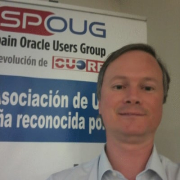

Oracle Multitenant and PlanetScale compete in the database management category. Based on data comparisons, PlanetScale's scalability and simplicity give it an edge, especially for businesses looking for agile solutions.
Features: Oracle Multitenant allows multiple pluggable databases to run within a single container. It enhances database consolidation and provides effective resource management. PlanetScale offers a serverless architecture that simplifies management and features automated scaling. These benefits align well with organizations that prioritize agility and simplicity.
Room for Improvement: Oracle Multitenant could improve its deployment complexity, requiring specialized infrastructure knowledge. Simplifying integration with third-party tools could also enhance its appeal. More flexible licensing options would attract a broader audience. PlanetScale could expand its customer support options and provide more robust enterprise features. Enhancing offline capabilities and providing more granular customization tools would also strengthen its offering.
Ease of Deployment and Customer Service: Oracle Multitenant offers comprehensive customer service with detailed deployment support, but its infrastructure requirements can complicate initial setup. PlanetScale provides a streamlined deployment model with minimal setup, making it accessible even for teams lacking deep database expertise.
Pricing and ROI: Oracle Multitenant usually incurs higher initial setup costs due to infrastructure needs, impacting short-term ROI. Its powerful management features can justify these costs for organizations requiring robust solutions. PlanetScale’s flexible pricing offers an affordable entry point, suitable for businesses seeking quick ROI from its serverless architecture. This cost-effectiveness appeals to companies looking to optimize efficiency without large upfront investments.


Oracle Multitenant - an Oracle Database 12c Enterprise Edition option – introduces a new architecture that enables customers to easily consolidate multiple databases, without changing their applications. This new architecture delivers all the benefits of managing many databases as one, yet retains the isolation and resource prioritization of separate databases. In addition, Oracle Multitenant enables rapid provisioning and upgrades, and fully complements other options including Oracle Real Application Clusters and Active Data Guard.
For more information on Oracle Multitenant, visit Oracle.com
PlanetScale offers seamless database management with features tailored for modern development environments, enabling enhanced project operations through efficient integration and ease of use.
PlanetScale is designed to support modern developer workflows through features like automated connection pooling and constant availability, making it ideal for serverless applications. Its integration with tools like GitHub and Prisma enhances the developer experience, allowing fast setup and effortless database interactions. However, users note challenges with analytical queries due to row-based billing and the absence of foreign key constraints. Integration with platforms such as Firebase and Next.js presents additional hurdles. Recent changes, such as the removal of the free tier, have impacted adoption by hobby developers, highlighting a need for more accessible pricing plans.
What are the most important features of PlanetScale?PlanetScale finds significant use in hosting databases for portfolios, company websites, and academic projects. Its compatibility with Prisma facilitates seamless MySQL database management online. Users leverage its capabilities for analytical queries and manage data environments effectively. Teams value the platform for specialized tasks such as URL shortening and social media automation, which are crucial in rapidly evolving digital industries.
We monitor all Relational Databases Tools reviews to prevent fraudulent reviews and keep review quality high. We do not post reviews by company employees or direct competitors. We validate each review for authenticity via cross-reference with LinkedIn, and personal follow-up with the reviewer when necessary.